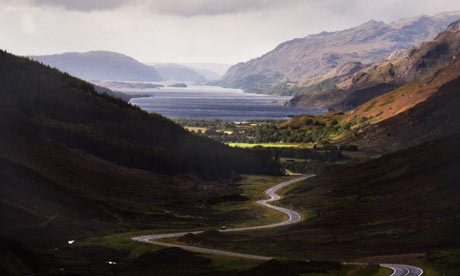
No one believed the claims of early scientists who said the world was round. Imagine the public's disbelief if they had been told about the existence of super floods and super volcanoes that shook the planet to its core. Scientists branded geologist J Harlen Bretz a heretic in the 1920s for his theory that the Scablands, an area in the North West corner of the US known for its 'dry falls' and craggy landscape, had been created overnight by a giant flood.
In the episode, Mega Flood, a team of maverick geologists hunt for clues to prove Bretz's theory to be true. Scattered across the terrain, they find one-hundred tonne granite boulders, giant potholes, 40-foot ripples carved into the landscape and scratch marks gouged into the bedrock. "In geology we are really looking for evidence of features in the rocks, on the landscape. It is very similar to what a detective does looking for clues at a crime scene. Those clues fit into a pattern and ultimately a culprit is associated with that crime scene," explains Geosciences Professor Vic Baker, from the University of Arizona.
In the Earth Shocks series, Mega
Volcano, reveals how evidence found by climatologists studying changes to the atmosphere in Greenland kicked off an investigation into one of the world's largest volcanic eruptions. "The more I looked at the results, I knew we were looking at something that was just cataclysmic," recalls Greg Zielinski, one of the team that discovered the anomaly in ice dating back 75,000 years. Further clues located underwater, in rocks and buried under ash directed Zielinski and his fellow scientists to a startling discovery: the existence of a super
volcano on the site of Lake Toba in Indonesia. Some scientists predict that when it erupted 75,000 years ago, it caused so much devastation that the world was pushed into an ice age lasting a millennium. More alarming is the possibility it could erupt again. "Well, a super volcanic eruption would affect all aspects of modern life and modern civilisation," says geologist Mike Rampino.
Read more...































 Dan Snow follows the making of the British Museum's biggest exhibition in a generation and tells the story of its subject, the First Emperor of China. Qin
Dan Snow follows the making of the British Museum's biggest exhibition in a generation and tells the story of its subject, the First Emperor of China. Qin


